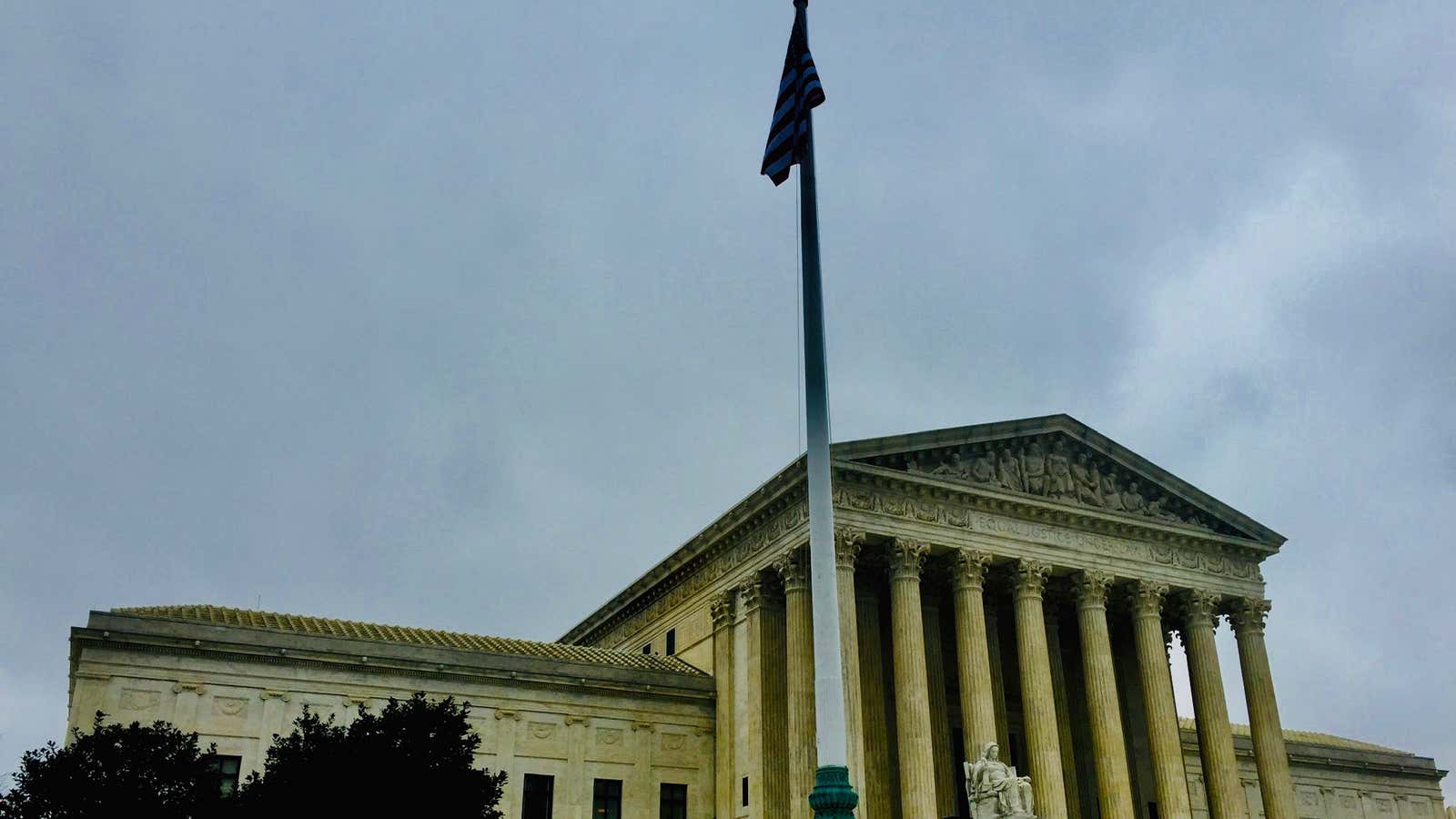The US Supreme Court yesterday unanimously decided a case that pitted Intel against a former employee and turned out to be a win for workers, as well as for users of the English language who like to think they know what plain words mean.
The matter stems from a dispute over the deadline for filing a claim under the Employee Retirement Income Security Act of 1974 (ERISA). Its outcome turned on the meaning of a phrase that sounds simple enough on its face—actual knowledge—but here led to very different interpretations with serious ramifications for employers and workers.
ERISA provides three different cutoffs for lawsuits alleging fiduciary wrongdoing: claims must be filed within three years of a plan recipient having “actual knowledge” of a breach; or within six years of the latest violation; or, where there was fraud and concealment, upon discovery of the breach. But the statute doesn’t define actual knowledge.
Here, a former Intel physicist, Christopher Sulyma, was trying to sue for an alleged breach but was thwarted in the lower courts. The company had successfully argued that his ERISA claim was filed past deadline. Sulyma had “actual knowledge” of retirement plan activities through financial disclosures on a website he accessed, Intel said.
Sulyma countered that he did not recall actually reading the disclosures and wasn’t aware of information he was given, therefore the six-year filing deadline for a breach claim applied, and his case should proceed.
The high court had to decide who was right, and the justices ultimately sided with the worker. That means Sulyma’s case against Intel’s retirement plan fiduciaries got the green light, and that employers nationwide now have to scramble to get their people really reading financial disclosures.
Did you get that thing I sent ya?
The phrase actual knowledge turns out to be uncomplicated, after all. In his opinion for the united bench, Samuel Alito explained that the words mean what they say. “Dictionaries are hardly necessary to confirm the point but they do,” Alito wrote dryly.
The term knowledge refers to “familiarity” or “awareness” or “understanding.” Meanwhile, actual indicates this comprehension is “real” or “in existence” as opposed to “constructive” or “possible,” or “presumed.”
He pointed out that in everyday speech actual knowledge might seem like a redundant phrase—either you know something or you don’t. But in the law the “actual” qualifier distinguishes this understanding from an awareness that’s imputed or assumed based on the context.
Nonetheless, legal dictionaries offer no alternative understanding of the phrase. In the law as in our daily life, actual knowledge is “direct and clear knowledge,” the opinion explains.
“A plaintiff does not necessarily have actual knowledge…of the information contained in disclosures he receives but does not read or cannot recall reading,” the court held. “To meet [the] actual knowledge requirement the plaintiff must in fact have become aware of that information.”
While this conclusion may seem obvious to everyday English speakers, it’s a refreshingly simple linguistic interpretation of a seemingly obvious phrase coming in the same week justices heard absurdly “metaphysical” arguments about the statutory meaning of the otherwise eminently comprehensible word “land.”
Deliberate ignorance will not be tolerated
Still, workers beware! The decision does now put the onus on employers to ensure that plan beneficiaries digest the disclosures they are sent. However, it didn’t encourage ignorance or suggest workers pretend not to have read pertinent information just to preserve their claims.
Companies can still prove actual knowledge in all the “usual ways,” the opinion explains. Meanwhile, plaintiffs who do remember disclosures will be bound by oath to say as much. “And this opinion does not preclude defendants from contending that evidence of ‘willful blindness’ supports a finding of ‘actual knowledge,'” the Supreme Court assures employers.
